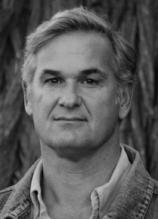Reading Group Guide
Discussion Questions
The Hummingbird

1. One of Deb’s patients gives her a carved hummingbird before he dies --- “a solid reminder that every patient, no matter how sick or impoverished, gives lasting gifts to the person entrusted with his care.” A fitting symbol and title for the book. Is every character a giver of gifts in the novel? What are some examples? Is there anyone who takes but doesn’t give back?
2. THE HUMMINGBIRD is a novel partly about the benefits of hospice care and the struggles that some families face when moving through the process of letting a loved one go. Have you had experience with hospice care for a loved one? Do you think you would consider hospice care as part of your end-of-life plan? Why or why not?
3. Deb is extraordinarily patient when it comes to Barclay Reed’s care --- a personality trait required by the profession. Do you think you could be a hospice nurse? Why or why not?
4. Deb’s husband, Michael, served in the Middle East for three tours. After his third tour as a sniper, he comes back emotionally scarred and suffers from PTSD, which strains their sex life and marriage. While Deb is patient in her approach to his recovery, she also asks him a lot of questions: how his day was, what he did, what he’s thinking about. Do you think her actions were effective? If you were in Deb’s shoes, what would you have done differently: Stay and be patient? Demand he go to counseling? Leave so he can sort things out on his own?
5. When asked about her profession, Deb says that “dying teaches her how to live.” What does that statement mean to you?
6. In reference to both his book and Deb’s husband, Barclay tells Deb that “in order to understand a warrior, first you must understand his weapons.” How do you interpret the phrase within the context of Deb’s relationship with Michael? Her burgeoning connection to Barclay? Does the metaphor apply to your own life or other social problems like addiction?
7. Because of her profession, Deb often puts the needs of others before her own. Do you think this is a useful approach in terms of her emotional health? Could she do a better job balancing her work and home lives? Why or why not?
8. THE HUMMINGBIRD includes portions of Barclay’s manuscript detailing segments of Japanese history, particularly relating to a Japanese pilot’s bombing spree over Oregon forests. Did you find these chapters to be interesting or distracting? Were you surprised that some parts of them were based on truth? Why or why not?
9. In 1961, the people of Brookings, Oregon, invited former pilot Ichiro Soga to visit from Japan for their annual Azalea festival. Many townsfolk objected, comparing the act to honoring Eichmann, a German Nazi SS and one of the major orchestrators of the Holocaust. Is such a statement a fair comparison? If you had lived in Brookings then, which side of the argument would you have been on and why?
10. Deb uses the Four Questions exercise in hospice care. With a friend or alone, discuss your answers to each of the questions. If you had to pick one to act on, which one would you choose and why? Is there a question you don’t want to act on? If so, how is your inability to act preventing you from living your life to the fullest?
11. After six months without sex and barely any meaningful interaction, Deb tries to reach her husband by going with him to the shooting range and learning how to shoot his gun. As a peaceful hospice worker with an avid distaste for guns, is this a realistic choice for her character? Would you have done the same if you were Deb?
12. Later in the novel, Barclay says to Deb that “only an unarmed man can say he has truly ceased fighting.” Literal interpretations aside, what does this statement mean to you? Does the philosophy have a place in today’s war-torn world?
13. Donny Baker III is a minor character, but an important one in that he arguably grows the most throughout the course of the book. What can be learned from his change in personality and outlook? Is it possible for everyone to change, even those with entrenched or inherited prejudices?
14. In speaking of her approach to hospice work, Deb’s attitude is, “Why withhold the thing the patient most wants? Give him that thing, for the little time he has left. And if it is a lie, then it is a noble one, a fib that means forgiveness, a falsehood that brings a man peace.” A poignant concept. What are your thoughts on the matter? Do they change if that “thing” is something destructive, like a cigarette for a man dying of lung cancer? Do the same rules apply outside matters of death? Where is the line between noble lies and harmful ones?
15. Kiernan writes, “War does ugly things. Its necessities turn good people into ugly creatures. In all nations this is true. All creeds, all races. Once fighting ends, both victor and defeated must choose: to deny what took place and resume life as before, or to acknowledge the moral consequence of what war required them to do.” Ichiro Soga is the perfect embodiment of this idea in the book. This is also the crux of Michael’s reentry journey. What do you make of this statement in light of America’s culpability in the Iraq war and in conflicts around the world? To which group do you think most people today belong? Who are some examples of the latter group?
16. Michael’s suicide attempt can be seen as either extraordinarily selfish or a cry for help. How did you interpret his actions? What do you make of Deb’s reaction?
17. Toward the end of Barclay’s life, his daughter shows up unannounced. Were you surprised by her appearance? What did you make of Barclay’s decision to send his daughter a letter full of lies while leaving her his inheritance? Was that to appease his conscience or hers? Given what Deb knows of Barclay’s life, do you think she sent the letter? Why or why not?
The Hummingbird
- Publication Date: June 28, 2016
- Genres: Fiction
- Paperback: 336 pages
- Publisher: William Morrow Paperbacks
- ISBN-10: 0062369555
- ISBN-13: 9780062369550








